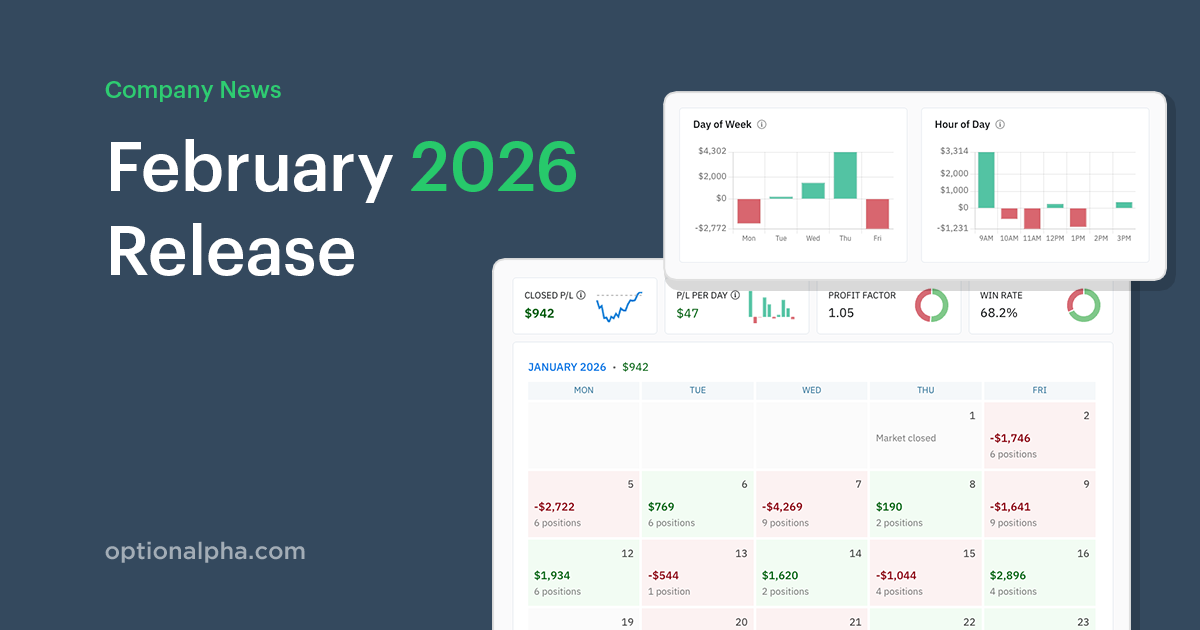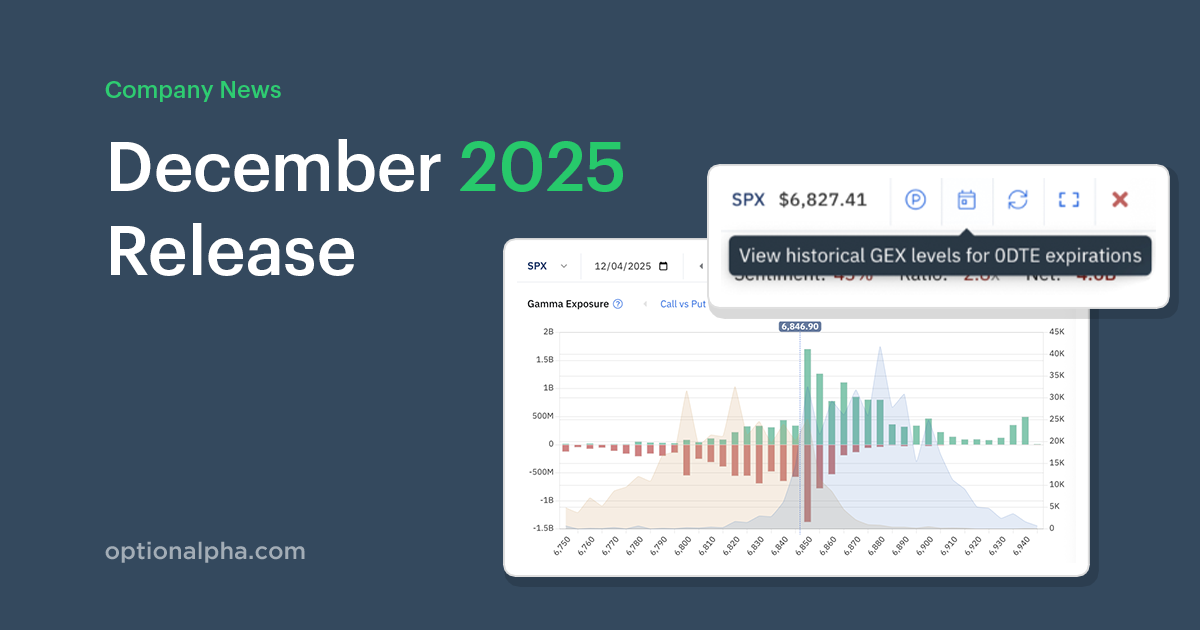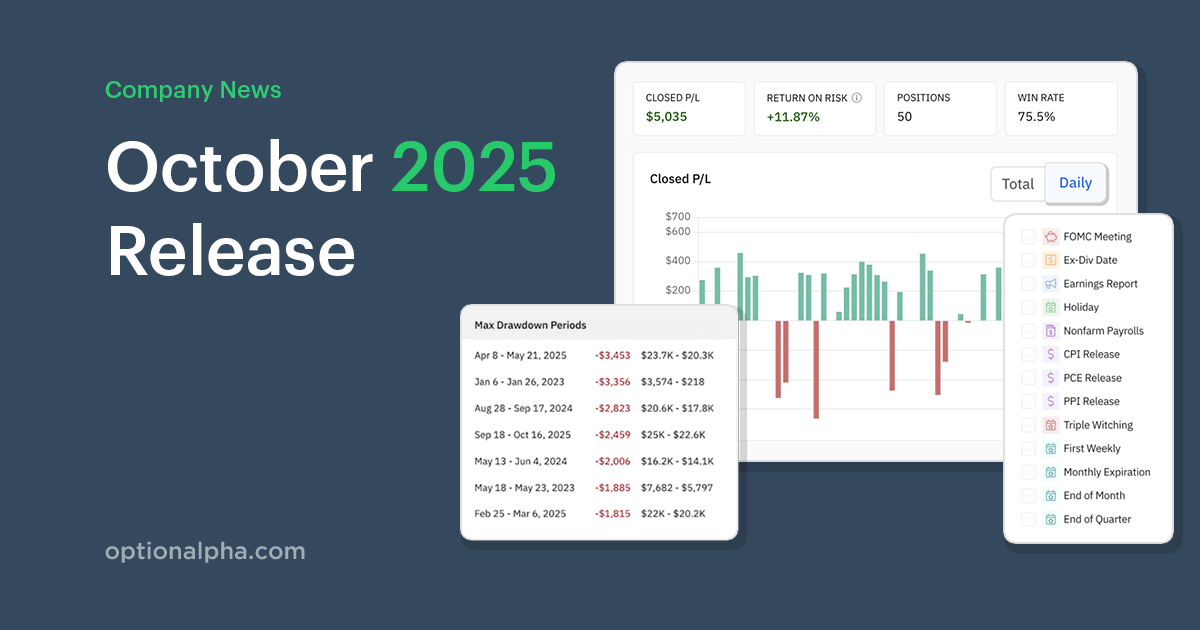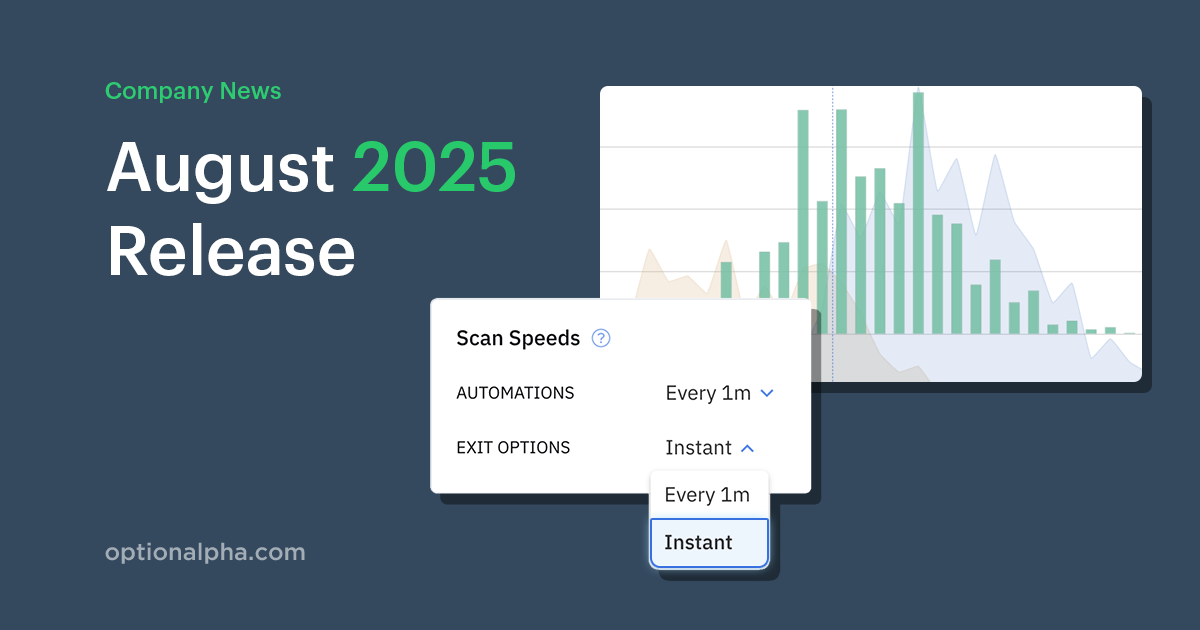The primary reason to start trading stock options is to make money. Your trading income is a vital component of your financial well-being and motivates you to progress in your trading and keep learning. One of the most common questions people ask is, “What can I realistically expect to make in my first year of trading?”
The short answer is that there are too many variables to make an educated guess on how much a first-year trader will make.
New traders tend to dive in headfirst and invest their hard-earned money without a plan. Unfortunately, most of them end up learning the hard way that generating a full-time income as an options trader is not as easy as it looks. At Option Alpha, we are traders just like you. Our goal is to help you overcome and, hopefully, bypass some of those initial growing pains in your trading career.
What Would Be A Realistic Earning Expectation For Trading Stock Options?
New traders who have not done their homework will usually have extremely high and unrealistic expectations of how much money they will make during their first year. Films and TV shows about trading, anecdotal evidence from friends, and online “gurus” with no track record or professional experience, fill people with false hope and unreasonable expectations when they begin trading stock options.
Just because someone traded 1 penny stock five years ago does not mean that a 454% return is normal or even expected. We have even had people ask us point-blank if making a 25% return each month is reasonable – spoiler alert, it’s NOT!
If you start your trading career with unrealistic expectations, it will inevitably lead to failure and disappointment.
It’s better to face reality now than be blindsided later. We would say a realistic goal would be to aim for around 20-25% return per year… not per month!
What Do I Need To Know To Make My First Trading Year Successful?
Instead of focusing on how much money you may or may not make, let’s start focusing on education. It would be best if you learned how to trade stock options successfully before you put a penny into the market; otherwise, you will fail.
Would you quit your job or drop out of school and then start pretending you were an expert in a field you had no experience in? Hopefully not. In essence, that is what trading with no research or education is like. Trading derivatives, like stock options, is a very technical and intricate process. It’s not impossible, but you need to start with your head in the right place.
Make sure that you create a trading plan and proactively educate yourself to have the best chance of success in your new endeavor.
New Trader – First Year Checklist
- Learn to avoid the common mistakes
Between 80% to 90% (maybe more) of traders end up losing consistently and leave the business altogether. The sad part is that most of those could have avoided taking on such heavy losses by learning to avoid the common mistakes early. Once you know what NOT to do, take the time to find out how successful traders trade, the techniques and strategies they use, and any other tips that will set you up for success in your trades. Remember, you don’t need to reinvent the wheel, so embrace the lessons of traders who have come before you.
- Accept that you will incur losses
The hard truth is that only a small number of traders are consistently profitable over a long period of time. Don’t be discouraged, we all fell off the bike before we learned to ride it, right? If you are starting out, expect to incur some losses as you navigate the learning curve. There is no question about that. For example, you will probably have options expire out-of-the-money and lose your premium, or you will need to sell a position to close at a loss in order to mitigate the damage of a trade that went against you. However, the most important factor differentiating you from many other traders is learning from the mistakes and continuing to trade after failing.
- Paper trade first with a small amount of money
I always tell my beginning coaching students to paper trade everything first. This way, you learn how to enter orders, adjust trades, and learn from your mistakes without losing real money.
Once you feel comfortable with your paper trades, you need to keep it small once you decide to invest real money. Think about it, if you can’t trade profitably with $1,000, how in the world are you going to make it with $100,000?
- Trade consistently – don’t walk away from a small losing streak
I see too many people quitting after a streak of 4-5 losing trades. This is a real shame because those losses are the most valuable teachers, especially at the beginning. Losing money is part of the game, but it’s how you manage your losses that makes all the difference.
Writing down every trade is an excellent habit to form. Dissect each part of the trade. Why did you pick that company? Why did you go short or long? Were you right about the direction? If so, did it move far enough in that direction to sway the balance of the trade in your favor?
It is impossible to predict price movements consistently, which is why our strategies don’t require perfect predictions for success. Read the technical indicators, control your emotions, and above all else…preserve your capital!
- Don’t expect to become financially independent overnight
To drive home the point we made earlier; don’t you think it’s completely unrealistic to expect a small account, say under $5,000, to generate consistent income which replaces your regular job? Instead of looking at your trades like a slot-machine, concentrate on low-risk, high-frequency trading with income-oriented trading systems. The key to success with options is keeping your trades consistent, and trading them persistently, even when you hit a losing streak.
If you are able to break away from the notion of becoming an overnight multi-millionaire trader and take an objective stance on your strategies, you will be light-years ahead of most aspiring traders. The key is to look at trading options as a long-term commitment to self-improvement. Unlike other “hobbies,” a great deal of your money is constantly on the line when you trade. Embrace the focus and determination to look at your trades with professional skepticism and treat your trading as a profession. After all, the goal is to generate income eventually.
- Develop your trading strategy based on facts
One of the most effective ways to succeed in options trading is by having a sound trading methodology. Instead of trading on solely gut-driven hunches, take time to sift through the information available on our website and conduct factually driven research on trading stocks and options. This way, it will be easier for you to set realistic income goals and avoid making too many mistakes, which will prevent your emotions from getting in the way of the math.
One of the most effective methods of developing a fact-based trading system is to organize your research. Choose your favorite market news sources and subscribe to their newsletters, read new perspectives that challenge your assumptions, and play devils-advocate with your trades.
Developing these research methods and forcing yourself to evaluate your trades will encourage you to utilize an objective lens with your trades. If you are able to develop a habit of objective research towards the beginning of your trading career, you will enhance your trading reflexes and spot inefficiencies quickly.
Finally, a fact-based research methodology will give you a concrete understanding when it comes to setting realistic earnings expectations. The beginning stages will be rocky, but perseverance and due-diligence will guide you to an effective and manageable trading strategy.





.png)








